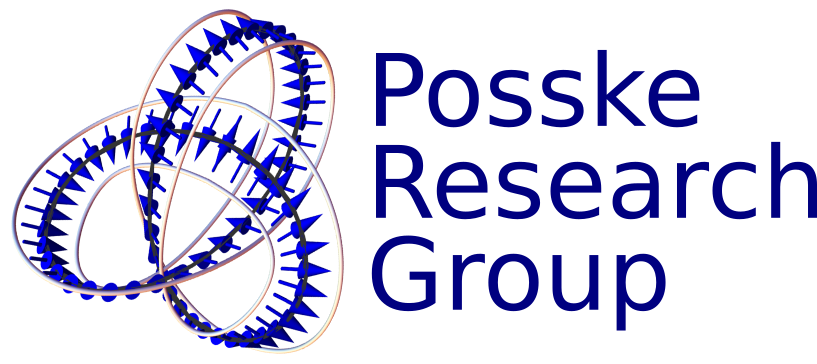
View our publications on Google Scholar.
We investigate topologically robust properties of condensed matter systems, in particular
spin systems,
anyons, and
Majorana fermions
with the aim to boost quantum technologies and in particular quantum computing.
We also work on the Kondo effect with focus on the Kondo cloud as well as
hybrid systems of a trivial and topological phases.
We are actively promoting science for the public.
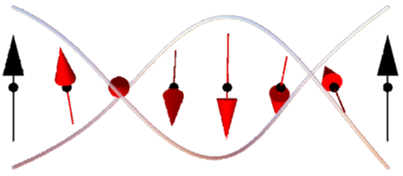 Topologically nontrivial magnetic configurations like helices and magnetic smyrmions, are at the heart of our research.
These configurations carry intruiging physical properties that can carry over to the quantum realm.
We describe the quantum transition of these objects with possible applications for quantum computing and topological quantum information storage.
Topologically nontrivial magnetic configurations like helices and magnetic smyrmions, are at the heart of our research.
These configurations carry intruiging physical properties that can carry over to the quantum realm.
We describe the quantum transition of these objects with possible applications for quantum computing and topological quantum information storage.
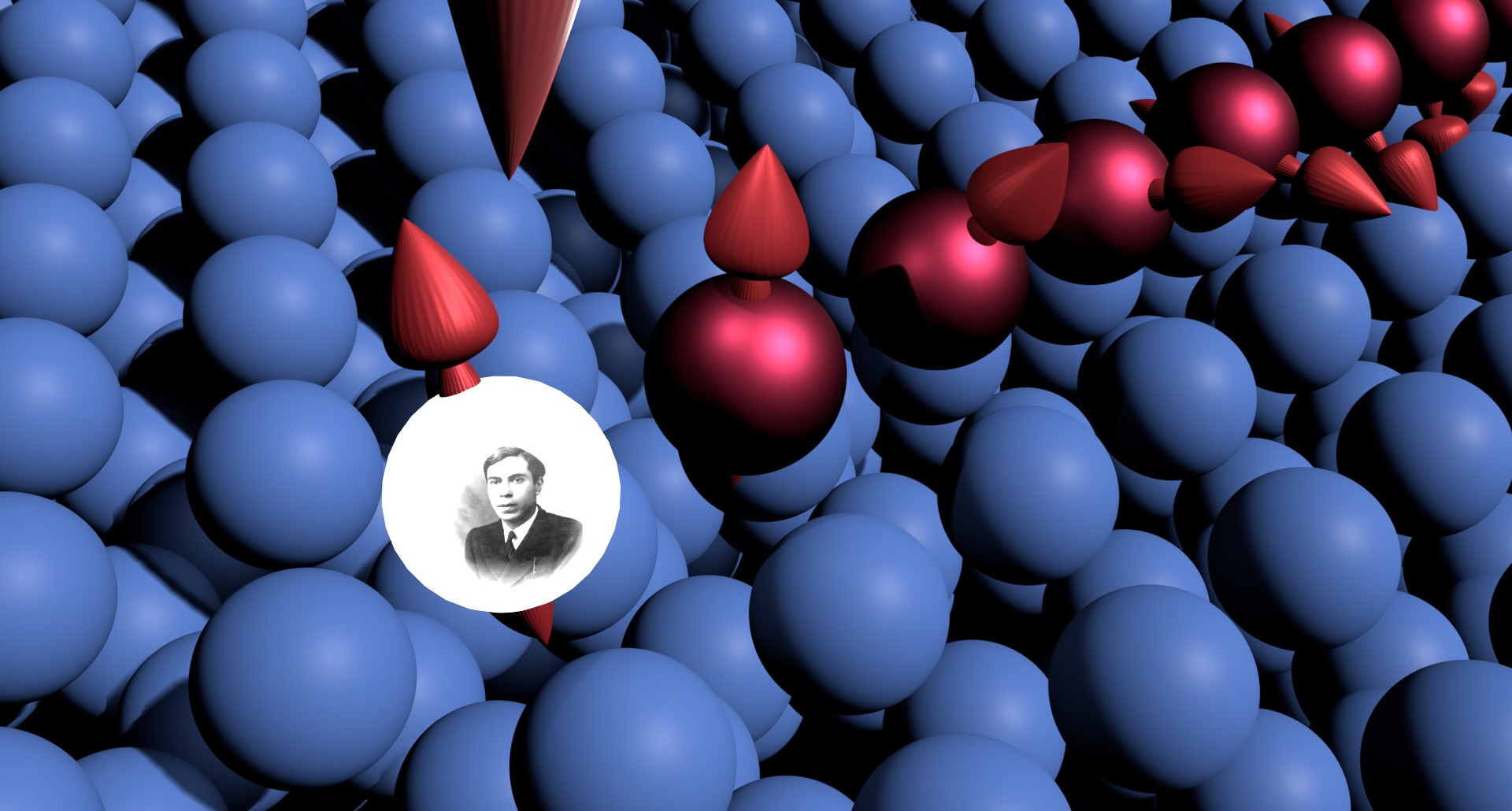 Majorana zero modes are topological quasiparticles that
can appear at the ends of topologically superconducting wires and at the center of superconducting vortices.
We are deriving experimental signatures and potential applications for these excotic quasiparticles.
Majorana zero modes are topological quasiparticles that
can appear at the ends of topologically superconducting wires and at the center of superconducting vortices.
We are deriving experimental signatures and potential applications for these excotic quasiparticles.
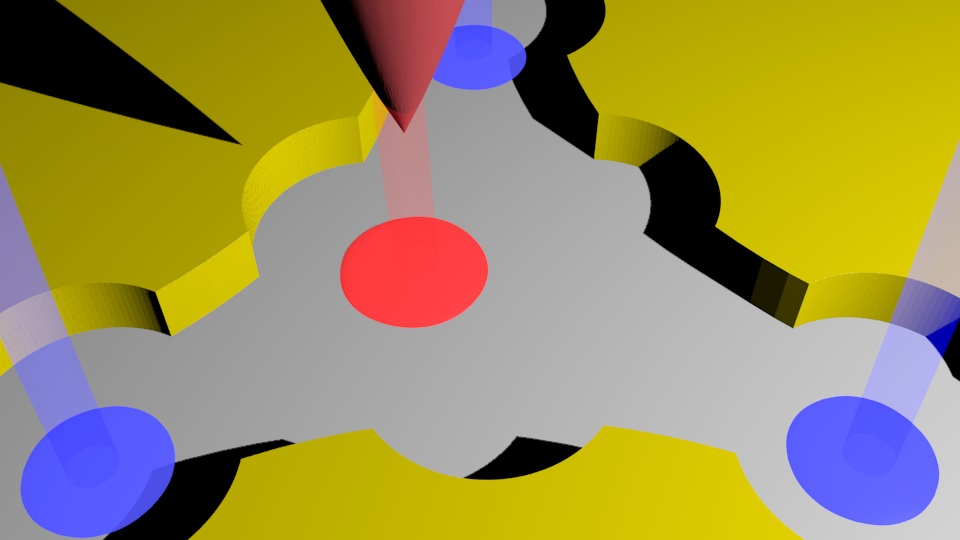 Quantum computers are suspected to be particularly robust when realized with
topological condensed matter systems. Majorana zero modes are nonabelian anyons, which can be employed for such an endeavou. We think off geometries
physical schemes how to implement robust quantum computing with Majorana zero modes at the ends of topological superconductors or in supercondcucting vortices (see figure).
Quantum computers are suspected to be particularly robust when realized with
topological condensed matter systems. Majorana zero modes are nonabelian anyons, which can be employed for such an endeavou. We think off geometries
physical schemes how to implement robust quantum computing with Majorana zero modes at the ends of topological superconductors or in supercondcucting vortices (see figure).
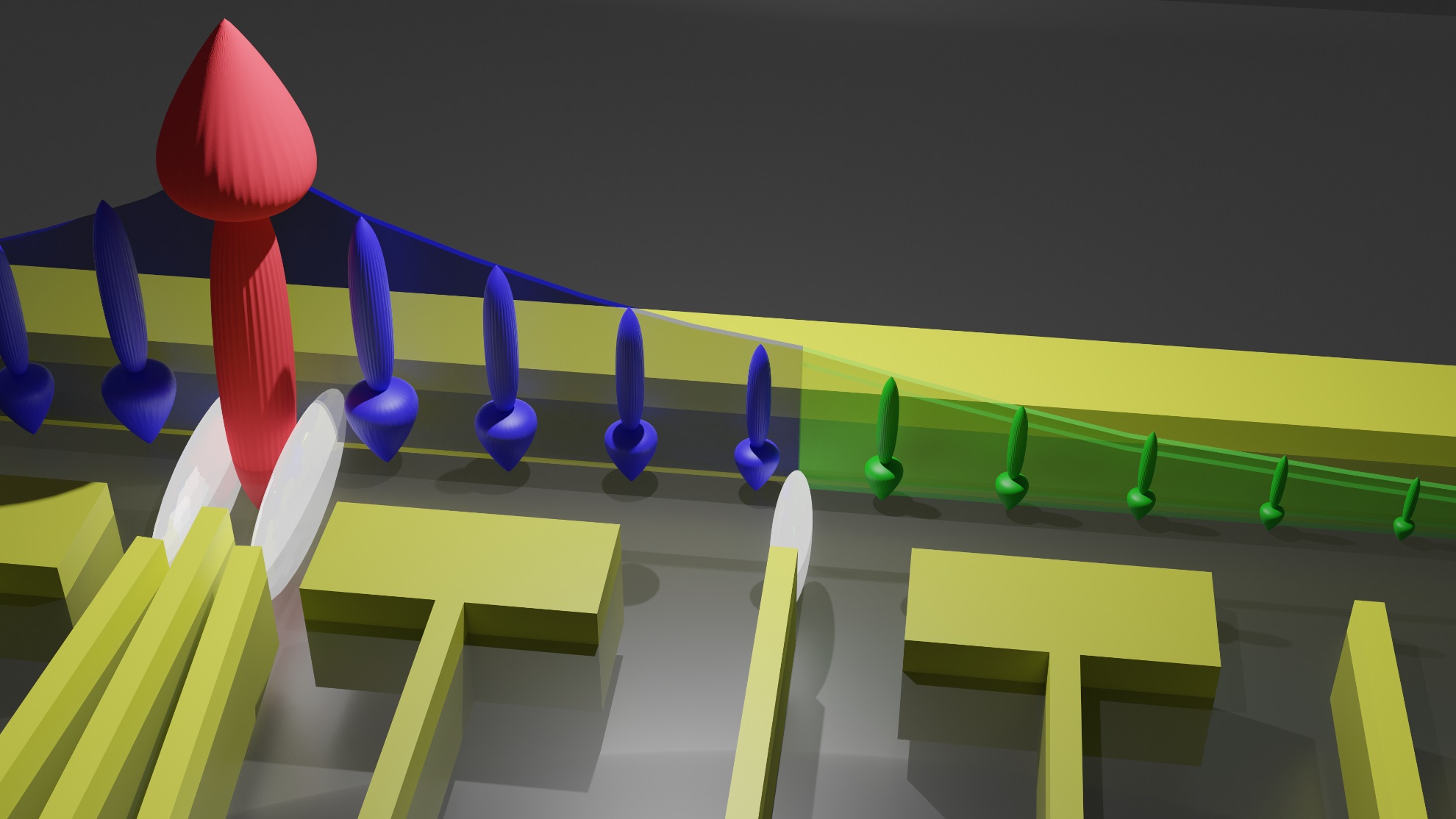 The Kondo effect happens, when a magnetic impurity couples to a fermionic bath, for instance,
when Fe atoms are used to dope metals. The electrons of the bath effectively screen the magnetic moment. We use exact solutions for this archetypic
quantum mechanical problem to learn about the Kondo cloud, entanglement, and spread of information in the Kondo problem, as well as experimental signatures of the Kondo cloud.
The Kondo effect happens, when a magnetic impurity couples to a fermionic bath, for instance,
when Fe atoms are used to dope metals. The electrons of the bath effectively screen the magnetic moment. We use exact solutions for this archetypic
quantum mechanical problem to learn about the Kondo cloud, entanglement, and spread of information in the Kondo problem, as well as experimental signatures of the Kondo cloud.